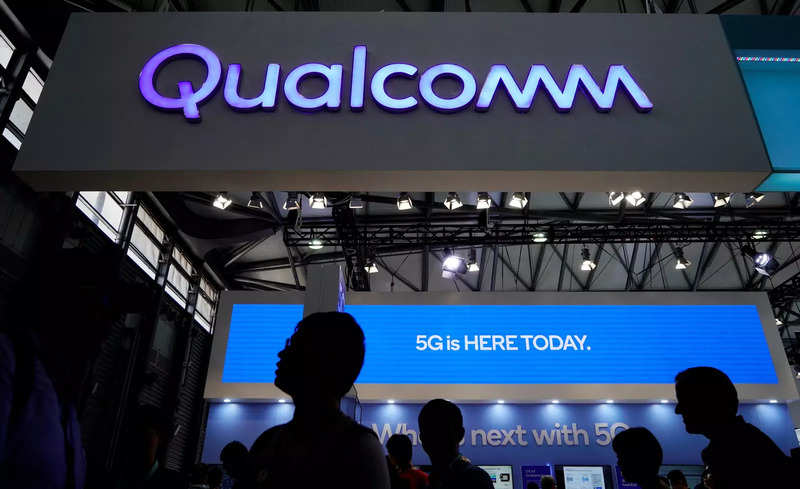Qualcomm raises red flags, cites economic slowdown and fall in smartphone demand
Shares of the San Diego-based company fell about 2.8% in extended trading, deepening this year's drop of about 18% amid a broader selloff in growth stocks.
"We expect the elevated uncertainty in the global economy and the impact of Covid measures in China will cause customers to act with caution in managing their purchases in the second half," said Chief Financial Officer Akash Palkhiwala.
The Ukraine crisis and China lockdowns have also worsened supply-chain snags and hurt demand, forcing many phone makers to cut orders for chips.
The company now expects smartphone sales to fall 5% this year, compared with its prior outlook for flat growth. IDC had projected a 3.5% drop in smartphone shipments.
More than half of Qualcomm's total sales comes from the handset segment, which makes modem chips for Apple iPhones and chips that power some models of Samsung's Galaxy S series.
Company executives reiterated that Qualcomm's focus on supplying chips to premium phones and its push to diversify into other sectors such as automotive would cushion the hit from cooling smartphone demand.
In the third quarter, the chip designer beat expectations for adjusted revenue, driven by growth of 59% at its handset chip business.
Chief Executive Cristiano Amon said revenue from the automotive business reached a record in the third quarter and would surpass that in the next.
Qualcomm forecast current-quarter revenue between USD11 billion and USD11.8 billion, compared with analysts' estimates of USD11.87 billion, according to Refinitiv data.
It expects adjusted earnings per share of between USD3 and USD3.30, compared with estimates of USD3.23.
Adjusted revenue for the quarter ended June 26 was USD10.93 billion, compared with estimates of USD10.88 billion. Revenue for Qualcomm's chip designing business was USD9.38 billion, up 45% on the year while its licensing business produced USD1.52 billion, up 2% on the year.
Separately, Qualcomm said it had extended its patent license agreement with Samsung Electronics through the end of 2030. Amon said that would help secure revenue stability for its licensing business.
Qualcomm also agreed to expand the use of its Snapdragon platforms for future premium Samsung Galaxy products, including Samsung Galaxy phones.
"When we provide the Snapdragon 800 platform to a Galaxy smartphone, in terms of revenue and earnings, it replaces at least the revenue and earnings of selling modems to five iPhones," said Amon.
Qualcomm is sharpening its focus on chips that power phones rather than modem chips used to connect to networks as major customer Apple works on its own modem chips.
Paolo Pescatore, an analyst at PP Foresight, said Amon "has been on a relentless drive to diversify Qualcomm beyond smartphones, in part to help mitigate any future loss from Apple's modem switch".
( Details and picture courtesy from Source, the content is auto-generated from RSS feed.)
Join our official telegram channel for free latest updates and follow us on Google News here.



